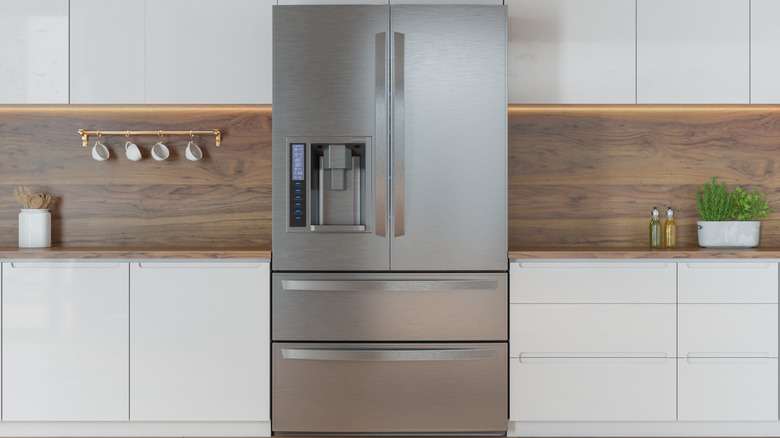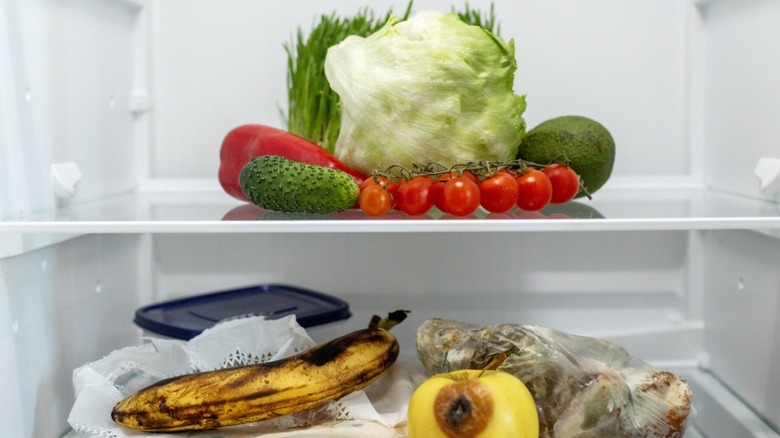The Telltale Food Safety Sign That You Need A New Refrigerator
Few things are more frustrating than opening your fridge to get something to eat and discovering that it's gone bad. Whether it's a bell pepper that started wrinkling up too quickly, tomatoes that got slimy, or some chicken that doesn't smell right, it can really ruin your day. You expect food to last a certain amount of time in your refrigerator, but if it seems like that timeline has shortened and food is spoiling too soon, it may be time to replace your fridge. Any refrigerator becomes less efficient with the passage of time.
Most fridges will last between 10 and 25 years before needing to be replaced. The compressor will struggle to keep the required temperature, dust will prevent it from venting warm air properly, and the door seals will loosen up and let more cold air out and warm air in. Even with regular maintenance, this will still happen. If you have an older model refrigerator, it will be even worse. It will also cost you more in energy bills. If you're noticing food takes too long to cool down or isn't cold enough, this could be the issue. And food that isn't kept at the ideal temperature can quickly spoil, becoming a safety issue and resulting in early expiration.
Poor refrigeration is the cause of massive amounts of food waste every year. According to a 2024 study published in Environmental Research Letters, global food waste amounts to 620 million metric tons per year. Much of that can be attributed to transportation and storage issues before it reaches your home, but household waste is still a big contributor. A 2019 survey by Bosch showed that the average American throws away about 103 pounds of food from their fridge each year, resulting in nearly $3,000 worth of wasted food annually.
Wasted food and wasted energy
Inefficient refrigeration can lead to serious food safety issues. Bacteria isn't killed in the fridge; its growth just slows down. If your refrigerator isn't operating properly, that can increase bacterial growth. That will lead to spoilage, loss of money, and also a greater risk of food poisoning – sometimes even before you see the sure signs that food has gone bad and should be thrown away. Bacteria and mold from spoiled food spreads easily in a fridge and can contaminate nearby food. It's not just money you're losing on groceries with an inefficient fridge, but energy as well.
Offsetting the cost of a new refrigerator by factoring in how much money you'd save in energy bills isn't always easy. It's difficult to even figure out how much energy your refrigerator uses at the best of times. Plus, there's no hard and fast rule to follow. The cost of energy in California is going to be different from the cost of energy in France. It needs to be figured on a case-by-case basis, considering energy costs in your area, the size of your refrigerator, and how you use it.
A full refrigerator uses less energy than a mostly empty one, for instance. And a fridge in a hot garage all summer will struggle more than one in the basement. But when you factor in the money lost on food waste, and the lowered risk of illness, it makes sense to start looking at a new refrigerator if yours is struggling. It's better for your health and your wallet. If you go this route, here are 13 mistakes to avoid when buying a new refrigerator.

